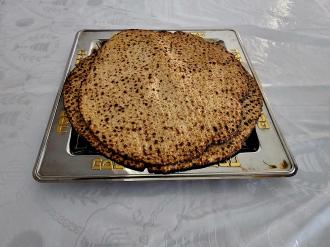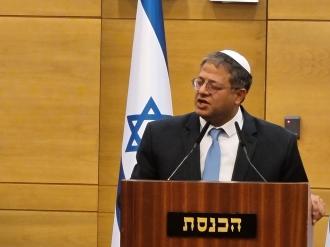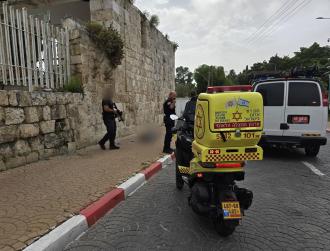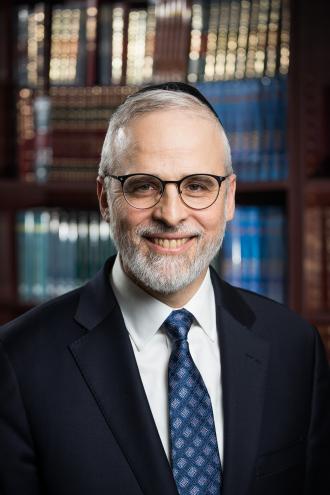As we commemorate International Holocaust Remembrance Day, we sadly recognize how the scourge of antisemitism continues to affect us. As noted last week in a strikingly candid and disturbing opinion piece in the WSJ:
“… It will be an ever-shrinking percentage (of Jews) who will actually be in harm’s way. The Jews at risk of anti-Semitic attack will include the small but growing number whose clothes make them targets, like many Orthodox, including Hasidim. Then there are the teachers at Jewish schools, the kosher butchers, the nurses in Jewish homes for the aged. And, of course, there will be those eccentric holdouts: Jews who continue to enter places like synagogues, having decided that praying with fellow Jews is worth the risk of dying with them.”
To be sure, this will not limit antisemitism to the Orthodox, as there are other “eccentric holdouts” across the Jewish community, including our brothers and sisters who experienced the horrors of the hostage-taking at the Reform Congregation Beth Israel in Colleyville, those murdered at the non-Orthodox Tree of Life in Pittsburgh, as well as those who use the treadmill at their local JCC. But the Orthodox community is exceptionally and stubbornly “peculiar,” living as it does in noticeably Jewish neighborhoods, shopping in kosher stores, educating their children in Jewish schools, attending in-person prayer services on a daily basis in large numbers, and all the while appearing clearly and identifiably Jewish.
It is for all these reasons that the 2020 Pew survey and ADL’s hate crime statistics demonstrate that Orthodox Jews experience a significantly disproportionate number of antisemitic acts and hate crimes.
Yet the depth of feeling with which Orthodox Jews are experiencing the current wave of antisemitism goes beyond elevated numbers. As we raise our children and gather as adults, we constantly share, study, and live with the Jewish story. This awareness inevitably leads us to view current events in the context of the ongoing story of ‘the longest hatred,’ the travels and travails of millennia of Jewish history that demonstrate the apparent inevitability of us overstaying our welcome in whatever the host country. The story is always the same, only the name of the host changes. After spending decades or even centuries as good citizens and builders of our next stop in the exile, previously unrecognized forces of pernicious hatred bubble up to produce death, destruction, and further exile for the Jews. The Holocaust was a singular example of this phenomenon, producing an unfathomable and unprecedented level of hatred and destruction.
But while the Holocaust was singular in its scope and magnitude, it too was part of this familiar pattern of Jewish history, déjà vu all over again, continuing the path of those stories we grow up on, from our slavery in Egypt to the repeated destruction of the Jewish Commonwealth, to the Crusades, the Inquisition, and the pogroms. The Holocaust is so much a part of broader Jewish history that the revered Rabbi Joseph B. Soloveitchik was resistant to the establishment of a specific day for Jews to commemorate it, preferring instead to memorialize it on Tisha B’Av when we revisit collectively the many tragedies of our history.
And so, when we as a community see what is occurring around us today in the United States, our first reaction is, “here we go again.” Will the country that embraced us and that we embraced, that did so much for us and that we have tried to do our part to enhance, will it now turn against us?
And while we will continue to be haunted by that question, we take solace in the strong and clear voices coming from leadership in both government and law enforcement willing and ready to condemn and to act against this ugly hatred in all its forms and from wherever it emanates. We remain concerned, however, by an apparently growing acceptability of antisemitic discourse in the public square, and most notably by the reprehensible level of such talk and action in our universities. This is an existential issue for this country that has not been addressed and needs to be, as history demonstrates how a society that breeds hatred of the other will collapse upon itself.
But it is not an existential issue for the Jewish people. Am Yisrael Chai. And that is because there is more – much more - to this story. The full story of the Jewish People is one that highlights our non-negotiable religious faith, our powerful sense of shared responsibility and community, and our sense of mission – dating back to Abraham - to bring the twin lights of faith and goodness to the world.
With G-d’s help we have outlived the many empires that turned on us. Our nation has been reborn after the Holocaust, moving in a mere 75 years from six million Jews murdered in Europe to six million Jews living in a reborn Israel. We will remain clear and focused on our story and our mission, and we will continue to enter places like synagogues, having decided that praying with our fellow Jews and doing our part to bring the twin lights of faith and goodness to the world is life itself.















